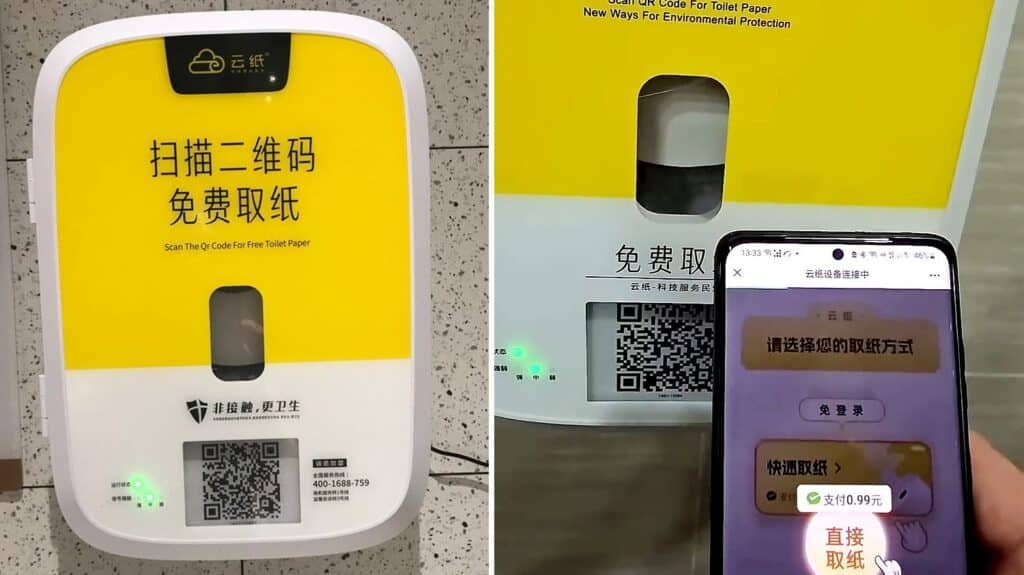
Things are getting dystopian: you’re in a Chinese public restroom, nature calling urgently, but the toilet paper dispenser won’t budge until you scan a QR code and watch a 30-second ad on your phone. This isn’t science fiction—it’s the reality in select Chinese facilities where municipal authorities have weaponized basic human dignity for ad revenue. You can skip the commercial for roughly 7 cents, but the message is clear: even your most private moments have become prime real estate for marketers.
The system represents an evolution from China’s previous facial recognition dispensers, deployed since 2017 in places like Beijing’s Temple of Heaven park. Those biometric machines rationed paper based on repeat visits, limiting users to once every nine minutes. The new QR-based model supposedly offers more privacy while maintaining the same goal: stopping toilet paper theft and waste.
When Public Goods Become Private Profit
Digital divides turn bathroom visits into exclusionary experiences.
Municipal representatives frame this as pragmatic problem-solving—reducing waste and deterring bulk theft that has plagued high-traffic facilities. The waste problem is real, with documented incidents of excessive paper removal in busy urban areas. But the solution creates barriers that didn’t exist before. No smartphone? No data plan? Dead battery? Tough luck. You’re either paying the bypass fee or hoping someone else can help you navigate the digital gatekeeping of basic sanitation.
Some users have expressed concerns about the system, describing it as ‘dystopian’ and highlighting issues such as phone battery depletion or lack of internet access during emergencies. The backlash has been swift and brutal. Chinese social media users describe the experience as “dystopian” and undignified, highlighting how what began as anti-theft technology has morphed into surveillance capitalism at its most intimate. You’re literally trapped in a stall, forced to engage with corporate messaging before accessing a basic necessity.
The Attention Economy’s Final Frontier
This represents the logical endpoint of monetizing human attention.
This feels like the endpoint of our ad-supported everything culture—the same logic that gives you “free” social media in exchange for your data, now applied to toilet paper. It’s like Netflix’s ad tier, but for bodily functions. The technology works exactly as designed, which somehow makes it more disturbing than if it were just broken.
What’s particularly chilling isn’t the innovation itself, but how quickly we’re normalizing transactional relationships with basic human needs. The infrastructure exists, the behavioral psychology is proven, and the revenue potential is undeniable. Yet authorities haven’t clarified policies surrounding user data collection, advertising targeting, or privacy protections. The question isn’t whether this will spread—it’s how long before we stop noticing the indignity of it all.
Last modified: October 20, 2025







